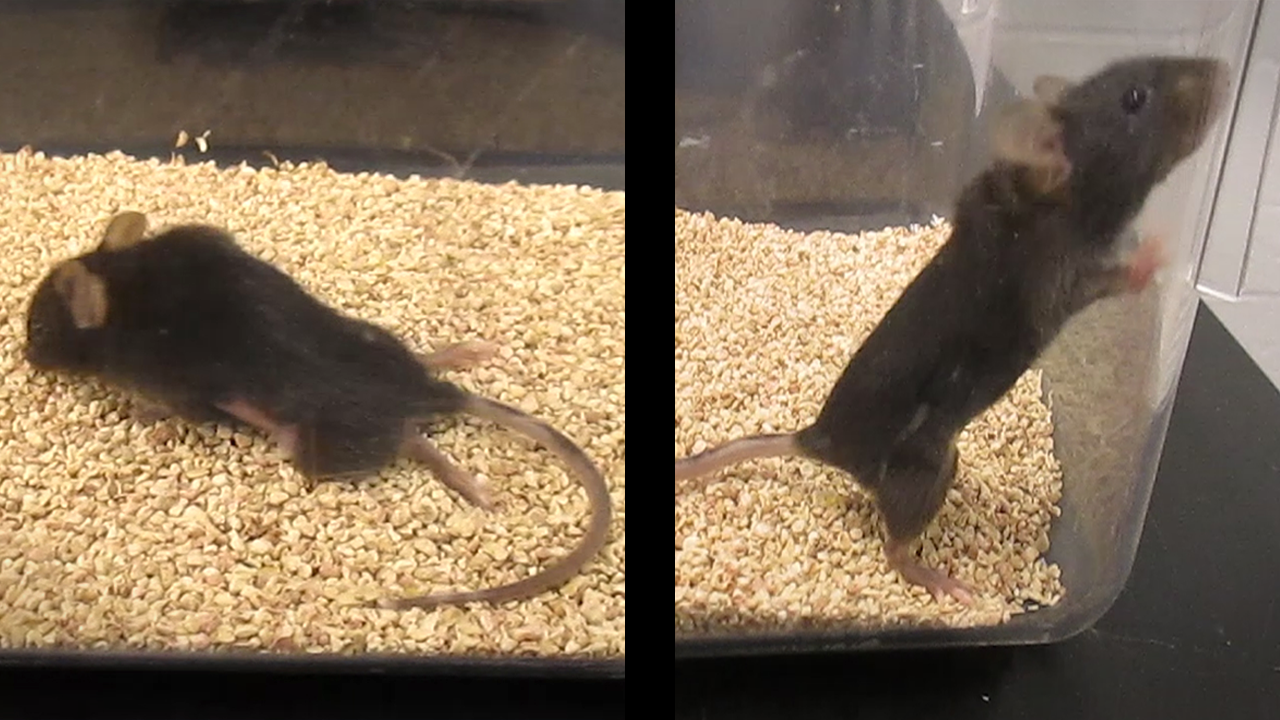FOR IMMEDIATE RELEASE | April 03, 2017
Altering the immune system to reverse paralysis (video)
Note to journalists: Please report that this research will be presented at a meeting of the American Chemical Society.
A press conference on this topic will be held Monday, April 3, at 10 a.m. Pacific time in the Moscone Center. Reporters may check-in at the press center, South Building, Foyer, or watch live on YouTube http://bit.ly/ACSLive_SanFrancisco. To ask questions online, sign in with a Google account.
SAN FRANCISCO, April 3, 2017 — In the ultimate betrayal, one’s own immune system can turn against the protective sheath that envelops neurons in the brain, leaving the body paralyzed. Researchers have developed an experimental treatment that tames the wayward immune system in rodents, returning the power of movement to paralyzed mice. The approach may someday combat autoimmune diseases, such as multiple sclerosis and type 1 diabetes, in humans.
The researchers will present their work today at the 253rd National Meeting & Exposition of the American Chemical Society (ACS). ACS, the world’s largest scientific society, is holding the meeting here through Thursday. It features more than 14,000 presentations on a wide range of science topics.
A brand-new video on the research is available at http://bit.ly/acssfbiomaterials.
“The problem with current immunotherapies is that they aren’t specific,” says Christopher Jewell, Ph.D. “They act broadly, compromising the entire immune system and putting the patient’s health at risk, rather than focusing on only those immune system cells doing the damage.”
By considering how the immune system works, Jewell’s team at the University of Maryland set their sights on the lymph nodes as a possible target for creating a specific immune response. In autoimmune disease, a body-roaming immune cell recognizes an antigen — a molecule that the cell in this case falsely identifies as a piece of a foreign invader — and brings it to the lymph nodes, where another type of immune cell, the T cell, is then programmed to attack the antigen. For example, in multiple sclerosis, T cells are taught to recognize and attack the myelin sheath. Jewell thought it might be possible to prevent the T cells from learning bad habits by delivering an immune-system modifying agent directly to the lymph nodes.
To build the immunotherapeutic agent, the researchers first constructed a particle from poly(lactide-co-glycolide), an FDA-approved polymer, to serve as a carrier. They infused it with an immune-suppressing agent and the myelin antigen, to teach the T cells that myelin is no enemy.
The researchers injected these particles into the lymph nodes of paralyzed mice exhibiting a mouse model of multiple sclerosis. The particles slowly reprogrammed the environment of the lymph node tissues to generate immune cells that migrated to the brain to stop the attack against myelin. These mice regained the ability to walk, and the effects lasted for the duration of the study, which was about 80 days. The mice were also able to readily respond when foreign molecules were introduced, suggesting that the treatment didn’t compromise normal immune function.
As a next step, the researchers have been testing the idea in other mouse models of autoimmune disease, including transplant models and models of type 1 diabetes — a disease in which the immune system attacks the pancreas. Later this year, the group will team up with clinicians at the University of Maryland Medical School to begin tests in non-human primates, another step closer to investigating this idea as a future human therapy.
Jewell acknowledges funding for this project from the National Multiple Sclerosis Society, the U.S. Department of Veterans Affairs and the National Science Foundation.
The American Chemical Society is a nonprofit organization chartered by the U.S. Congress. With nearly 157,000 members, ACS is the world’s largest scientific society and a global leader in providing access to chemistry-related research through its multiple databases, peer-reviewed journals and scientific conferences. ACS does not conduct research, but publishes and publicizes peer-reviewed scientific studies. Its main offices are in Washington, D.C., and Columbus, Ohio.
Media Contact
ACS Newsroom
newsroom@acs.org
High-resolution Image






